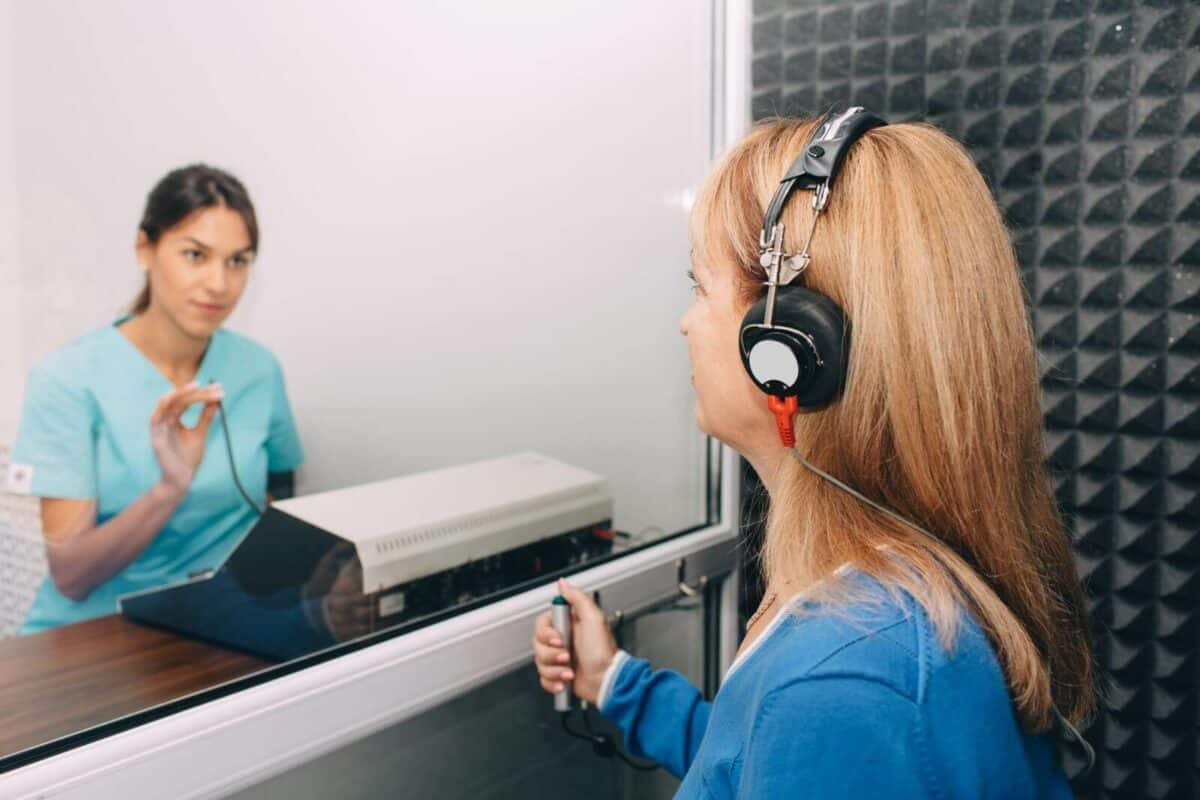- Using Hearing Aid Accessories for Enhanced Listening - May 6, 2025
- Practical Tips for Managing Daily Challenges With Tinnitus - April 8, 2025
- Signs Your Hearing Aid Battery Needs to Be Replaced - March 13, 2025
Though hearing loss is one of the most common health conditions people live with today, it is often avoided. Over 48 million people have some degree of hearing loss but only a third of people who could benefit from treatment, receive it. Studies show that it is common to avoid hearing tests and delay treatment. This can have significant effects on everyday life, health, adn wellness. It is important to be aware of this impact and to intervene early by having your hearing evaluated.
Impact of Avoiding Hearing Tests
It takes an average of 7 years for people to address their hearing loss symptoms. This delay in treatment can worsen hearing loss and the multifaceted effects and toll it can have on everyday life. This includes:
- Straining communication: hearing loss reduces one’s capacity to hear and process speech as well as sound. This produces a range of symptoms that make it challenging to hear including: tinnitus (a ringing or buzzing noise in the ears), sounds are muffled or distorted, and difficulty hearing in environments with background noise. Navigating these symptoms during conversations is difficult and this can lead to miscommunication, shortened conversations, and unpleasant interactions.
- Impacting relationships: communication is essential for relationships. Strained communication produced by hearing loss symptoms can also take a toll on relationships. People often report feeling unheard and ignored by their loved one with hearing loss. Hearing loss can prevent people from spending quality time with others and having quality conversations. This can lead to frustrations, tension, adn distance in relationships.
- Deteriorating social life: to cope with hearing loss symptoms, it is actually common for people to avoid conversations as much as possible. This often includes spending less time with loved ones as well as skipping social gatherings and activities. Social withdrawal is a common symptom of hearing loss and this not only affects relationships and social connection but also mental health and wellness.
- Increasing health risks: extensive research shows that untreated hearing loss can increase a number of health risks. This includes depressive symptoms caused by social withdrawal and the toll hearing loss can have on relationships. It can also increase the risk of cognitive decline, falls, and accidental injuries.
Avoiding hearing tests can have significant effects on everyday life and health. These compounding effects of untreated symptoms can worsen the longer hearing loss is left untreated. This highlights the importance of intervening as early as possible.
Diagnosing Hearing Loss
Fortunately, there are comprehensive hearing healthcare services, resources, and solutions that you can access to transform your hearing health. The first step is to confront the symptoms you are experiencing by having your hearing health evaluated. Conducted by a hearing healthcare specialist, hearing tests involve a painless and noninvasive process that measures hearing capacities in both ears. This identifies any hearing loss and the degree of impairment in each ear. Once your hearing needs are established, treatment can be tailored to meet your specific needs.
Hearing Loss Treatment
The most common treatment for hearing loss is hearing aids. These are electronic devices that are designed to absorb, amplogy, and process speech as well as sound. This provides the ears and brain with significant support – making it easier to hear. Hearing aids alleviate hearing loss symptoms and maximize a person’s capacity to hear. Today’s hearing aids are more innovative than ever before. They offer various styles, colors, and technologies that seamlessly integrate the device into everyday life.
There is a range of hearing aid features that maximize cutting edge technologies designed to optimally support hearing. This includes digital noise reduction, voice recognition, tinnitus management, wireless connectivity, and a downloadable app that allows you to easily manage your hearing aids settings. These features deliver exceptional sound quality, increase connectivity, and make hearing comfortable in everyday environments. Hearing aids not only improve hearing but also strengthen communication. This offers countless benefits including improving relationships, enriching social life, and boosting overall health and wellness.
Prioritize Your Hearing Health Today
The first step is simple: schedule an appointment for a hearing test. Contact us today to schedule a hearing consultation. We look forward to supporting you as you prioritize your hearing health.


